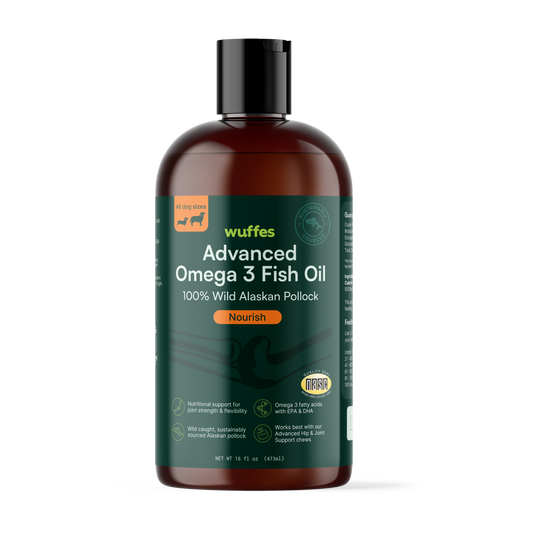Just like humans, dogs can experience body aches as they age. One of the most common issues dogs face is joint discomfort. Certain breeds are more predisposed to joint problems, making it essential to be proactive about their joint health.
What are the signs of joint problems in dogs?
Being attentive to your pet's needs is crucial, but it can be challenging to detect pain in dogs since they have a natural instinct to hide discomfort.
Signs to watch for include:
- Limping, often accompanied by stiffness
- Lethargy or reluctance to play
- Irritability or signs of depression
- Decreased appetite
- Frequent slipping while moving
- Chewing or licking at the area of discomfort
If you notice any of these signs, it's best to consult your vet for advice on addressing your dog’s condition.
What are the ingredients found in effective joint supplements?
After consulting with your veterinarian, consider incorporating joint supplements into your dog’s routine. These supplements can help address existing joint issues or support overall joint health.
Key Ingredients to Look For:
- Glucosamine and Chondroitin: Found in our Advanced Hip & Joint Support Chews and Advanced Joint Liquid, these are foundational components in joint health that promote joint flexibility and mobility
- Omega-3 Fatty Acids:Found in our Wild Fish Oil, Omega-3s have anti-inflammatory properties that can help maintain joint health and reduce discomfort.
- MSM (Methylsulfonylmethane): Found in our Advanced Hip & Joint Support Chews and Advanced Joint Liquid, this organic compound may aid in reducing inflammation from normal exercise and aging, and promoting joint health.
- CBD (Cannabidiol): Our CBD Isolate Oil can provide immediate support for occasional joint discomfort.
- Green Lipped Mussels: Found in our Advanced Hip & Joint Support Chews, GLM is a natural source of glucosamine.
- UC-II Collagen: Found in our Advanced Joint Liquid, this form of collagen is derived from chicken cartilage and has been shown to help improve joint mobility and reduce pain in dogs.
How effective are joint supplements?
According to the American Veterinary Medical Association (AVMA), certain joint supplements show promise, while others may not have significant effects. It's essential to carefully assess the ingredients in any joint supplement you consider.
Studies indicate that glucosamine and chondroitin can be beneficial for joint health when administered in appropriate doses. Incorporating a balanced diet is equally important. Ensure your dog avoids inflammatory fillers and processed foods that can worsen joint conditions. Instead, focus on anti-inflammatory foods such as apples, blueberries, and sweet potatoes, which can be beneficial for joint health.
Recommended joint supplements
To support your dog's joint health, consider the following Wuffes products:
- Advanced Hip & Joint Support Chews: Ideal for daily maintenance and proactive care
- Advanced Joint Liquid: Best for more intensive joint care.
- Advanced Omega 3 Fish Oil: Provides a boost of Omega-3 fatty acids for joint nutrition.
- CBD Isolate Oil: Offers immediate support for occasional joint discomfort.
- Portable Laser Therapy: Not a supplement, but a helpful at-home treatment for ongoing conditions or inhury rehabilitation.
Conclusion
Taking proactive steps in managing your dog's joint health can greatly improve their quality of life. By considering effective joint supplements and a balanced diet, you can support your dog in maintaining their mobility and overall well-being. Always consult with your veterinarian before starting any new supplement regimen.











